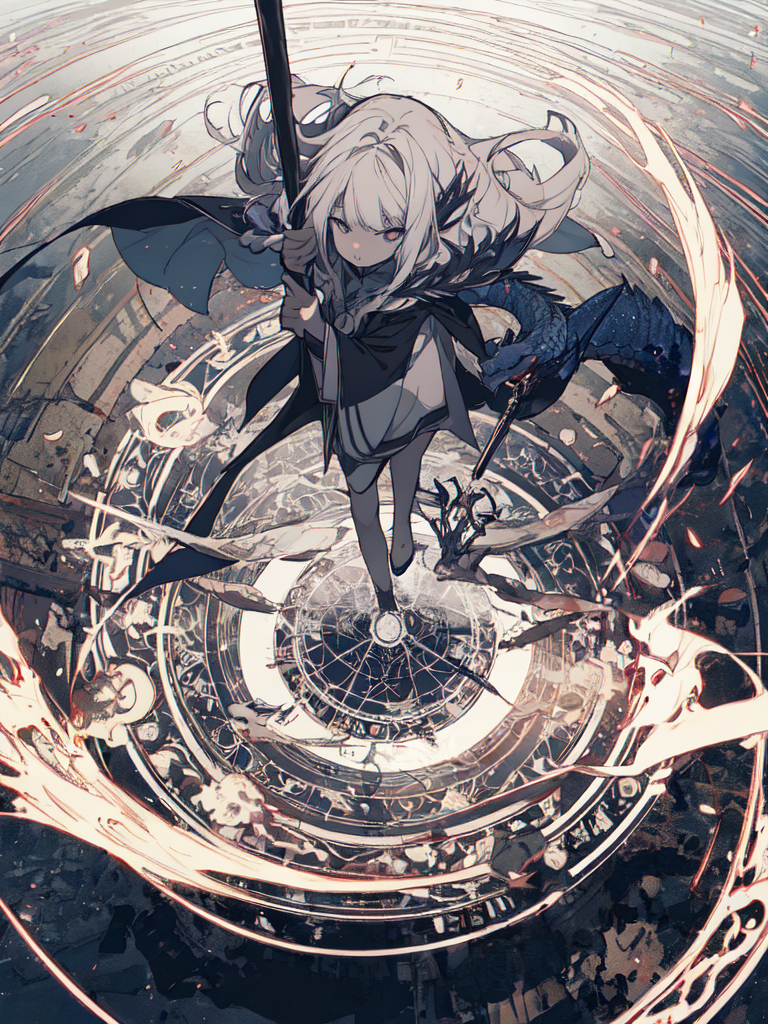MAGIC SYSTEMS

OVERVIEW
All life has mana, and all people are capable of using magic, though the teaching of it is secretive.Each mage is dedicated to a specific System of multiple Paths, a set of symbols that can be used to channel mana into an effect in the world.
Effects are categorized as “Minor” and “Major”. Minor effects are subtle and may not be easily seen as supernatural (picking a lock or divining the location of something). Major effects disrupt common reality ina dramatic way (fireball, healing). Spells can contain more than one Major effect, at increased cost.
Spells of any meaningful strength require more mana than any one person has on hand. Therefore, they must spend time to pull mana from the surrounding environment. This can be ambient energy, mana given by other participants in the ritual, or mana from sacrifices of sentient or non-sentient life.
Although casting a spell is generally slow, they can also be channelled into a Shortcut, allowing completion of the casting at a later time.
Magic is also more dangerous. Critical failures in casting create a spell backlash equal to 3x the cost of the intended spell, with the exact effects of the backlash to be determined by the GM.
MAGIC IN MIRAI CITY
Mages are generally unwelcome in Mirai City – and mages generally disapprove of public exposure of this ‘unnatural magic’ of psi powers. Rumors persist that psi powers were created by a disgraced mage. Regardless of rumors, mages in the city will be aware that they are being observed at all times, on many fronts, including magical. A small number of mages, heretical or followers of tech-friendly syncretic paths, do live within the city for their own various reasons.Spellcaster players should be aware that any mage in the city is only there on the unspoken permission of city authorities.
ANTI-MAGIC FIELD
Mages who has spent any amount of time conversing with Mirai City based mages will be aware of the negative interactions between Psi powers and Magical ones. But unknown to most, in emergencies, city authorities can harness the abilities of every Psi user in the city to override System functionality within city limits. This creates a Systemic Backlash effect similar to that experienced when Psi-powered characters use magic -- though with the downside that it is impossible to target to an individual, affecting every single magic user within the city as a whole. For this reason, mages in the know never leave permanent enchaments running.SYSTEMS AND PATHS
Each mage uses a set of symbols called a System, all of which fall into one of three broad categories:* Neo-pagan: Modern re-imagining of pagan ritual practice, drawing on old pantheons of deities. Wide variety of specific groups within this category that do not share rituals between them. The Hidden Lore skill covers mythology and nonmagical aspects of these traditions.
* Esoteric: Dualism, personal interpretation of holy books, meditation/rituals. Personal imagining of a Greater Will and how we as humans interact with it and call upon it. The Theology skill covers nonmagical aspects of these Systems.
* Syncretic: Includes new age and other systems that ‘hack’ bits and pieces from various ancient traditions together. Mages using these Systems are generally disliked by neopagan/estoteric mages as heretical or disrespectful. The Occultism skill covers nonmagical aspects of these Systems.
Each System contains a number of Paths that describe the world within the context of the overall System and provide the magical symbolic tools to use for spellcasting.
SPELLCASTING
Each spell consists of one or more Path(s) and Effect(s) with modifiers to the mana cost based on desired strength, duration, and so on, with the total then finally multiplied for Major effects.If the spellcaster does not have enough mana, they can gain it in one of three ways:
* Ambient energy, gained at the rate defined in the Power Table for the character. * Voluntary contribution, with another person giving their mana to the ritual. This person does not need to be a spellcaster, only participate in the ritual. * Sacrifice: A nonsentient creature grants 3 mana, a sentient grants 10 mana.
The minimum casting time for a ritual is 5 minutes.
Once sufficient mana has been collected, the caster rolls the lowest applicable Path skill, modified by circumstances such as:
* Connection: -25% unless subject is present or have something closely related to them.
* Consecrated Space: -25% unless a special ritual area is prepared. Spellcaster characters can be assumed to have somewhere already prepared – if a new space is required, it takes a minimum of 1 hr every day for 1 week to create a new consecrated space. There is no way to speed this up.
Failure means the spell simply fails. Critical failure (99-00) causes a backlash on the caster worth 3x the mana generated, with the effect determined at the GMs discretion.
PREPARED SPELLS
By handling most of the ritual well in advance, mages can prepare ‘shortcuts’ to activate a spell quickly, spending the last 1 mana to activate the effect. A mage can only have their secondary System skill (Theology/Occultism/Hidden Lore)/10 number of shortcuts prepared at once. A shortcut takes a minimum of 30 minutes to prepare. There are two main types of shortcut:* Charms: A single-use physical object enchanted ahead of time that breaks or disintegrates on casting. * Performance: A short verbal recitation or gestures. Also one use, then spell vanishes from mind.. must be free to speak/act.
When you make a shortcut, you should note which type it is ahead of time.
Charms are favoured because they are less ‘obvious’.
Spells can also be cast conditionally, to go off when a predetermine condition is met.
GRIMOIRES
 Grimoires contain spells from a given System. Anyone, even mages from others systems’ traditions can attempt to use the spells therein, but the chance of backlash can be dramatically higher.
Grimoires contain spells from a given System. Anyone, even mages from others systems’ traditions can attempt to use the spells therein, but the chance of backlash can be dramatically higher.
True grimoires cannot be destroyed by mundane means, and have something similar to sentience. Though they do not generally speak, they are able to decide who is able to read them, and to cast their own spells.
Copies of grimoires are less dangerous and non-sentient, but must be written in a code by the copier rather than the original text and taught through interpretation of the code or otherwise decrypted (Occultism skill).
Sample Grimoire: De Vermis Mysteriis A tome of summoning spells for powerful otherworldly creatures. Grants a bonus 10 Mana immediately to any spell cast from it. All spells are Major effects. Backlash occurs on 85%-00% unless the grimoire approves of the reader. Skills: Insight 85%, Persuasion 75%, Occultism 99%
ARTIFACTS
Similarly to grimoires, permanently enchanted items are almost impossible to truly destroy and tend towards excessively powerful and possessing a will of their own. These Artifacts are capable of one or more specific spells, and the amount of Mana required to activate depends on the Artifact and its will. Backlash is not possible on an Artifact’s spells, but the wielder and Artifact must be in alignment, lest the item choose its own degree of activation or possibly even kill the wielder.Also like grimoires, copies of artifacts exist and are noticeably less powerful, but without the dangerous properties.
As Artifacts use Mana from wielder, they cannot be used by Psi-powered characters without receiving Systemic Backlash.
SYSTEMS/PATHS: MAGICAL SKILLS
 Select one System (or create one with GM approval). Sample Systems provided here:
Select one System (or create one with GM approval). Sample Systems provided here:
- Wu Xing
- Pantheist
- Astrological
- Hermeticist
- New Age
Wu Xing
- Earth
- Metal
- Fire
- Water
- Wood
- Yin
- Yang
- Body
- Breath
- Spirit
Greek Pantheist
- Heaven/Lightning
- Love
- Oceans/Moon
- War
- Wisdom
- Agriculture
- Healing
- Fire/Crafting
- Protection/Sun
- Death
Astrological
- Sun
- Mercury
- Venus
- Moon
- Mars
- Jupiter
- Saturn
- Uranus
- Neptune
- Pluto
Hermeticist
- Mind
- Correspondence
- Motion
- Polarity
- Flow
- Consequence
- Will
- Nature
- Magic
- Heavens
New Age
- Spirit
- Mind
- Nature
- Body
- Divine
- Karma
- Prosperity
- Healing
- Energy
- Love
